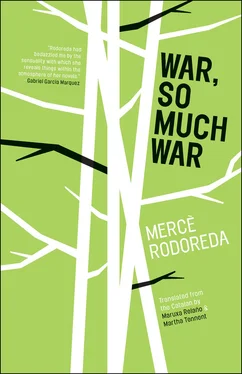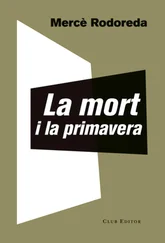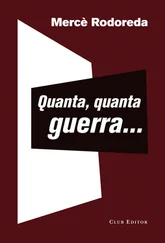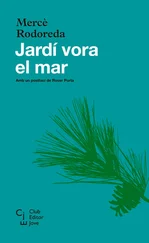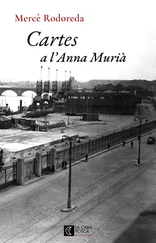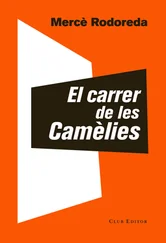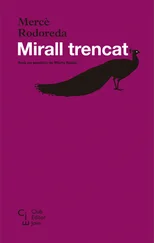I stopped at the edge of the forest, my hands and feet frozen, all of me a feverish knot, and hurled the burning log into the woods.
At first I couldn’t find the rowboat, but when I finally stumbled upon it, I let myself fall inside. I felt like the boat was sinking and I was rising, that nothing separated me from the boat, that the river was standing up. I still don’t know how I managed to drag it to the water, but somehow I found myself floating on the river with the oars in my hands. I rowed mechanically, lost in that nightmare, beneath a sky of hastening clouds, without knowing what to do, whether to let the current carry me downstream or to forge ahead. . if, in the end, one shore was the same as the next and nothing made any difference. Only the river and myself. No war. No evil. I grasped Eva’s knife, held it under the water, and then slowly opened my hand. The boat floated along on its own. . until, with some effort, I reached the shore. A gleam of moonlight fell on me like a sword and was mirrored by the river. The fog — a low, sulphurous-yellow fog — was spreading, slowly shrouding the dead.
I’VE LOOKED FOR YOU. I’VE BEEN SEARCHING FOR YOU SINCE YESTERDAY. As soon as you left I started looking. Where were you? I knew you would come back. The baby died, my son died. I was looking for you so you would help me bury him. The woman with the dead baby was carrying a lantern, which she handed to me. I was able to close his eyes. He doesn’t look, he doesn’t see, so beautiful. . the child was wearing a lace-trimmed garment, like a Christening gown, with a white ribbon just below his chest. A lace bonnet tied with a silk ribbon framed his face. Look how beautiful. The woman with the dead baby had a shovel at her feet. Pick it up. We’ll bury him farther down, where the ground is not so thick with the dead, in a hole made by a howitzer. The earth isn’t as hard there because it’s been turned. Close to the river, so it will lull him to sleep if he hears it. The woman’s face was as pale as the child’s: two faces as white as a sheet of paper against the sulphurous fog. I put the shovel inside the boat. You row, I don’t know how to. The boat glided along the water, cutting through the wisps of fog that drifted by, though the evening was airless. Last night I realized that my son had died and I started looking for you. He’d be alive if he had been able to eat, but the food is all gone. A neighbor gave me this gown — see? — and with tears in her eyes she said, bury him all beautiful. . She took my hand, your hand is as icy as my son’s. Only the whisper of the oars and the water could be heard. This is it. I recognize it from the flag, from the flagpole planted in the ground that the flash of moonlight just illuminated. I took the lantern and the shovel and helped her out of the boat, her child still in her arms. Can you feel how the earth slopes a bit under your feet?
The turned earth was soft in places, hard in others. Dig deep. She kept saying. Dig deeper. If you don’t make it deep enough the dogs will get to him and the birds will gouge his eyes out. If you tire, take a break, we have the whole night. Deeper. As deep as you are tall. I don’t want the dogs to find him. . she grabbed me by the arm and squeezed it tightly. You hear that? Don’t you hear a dog howling? They howl with their heads up and necks taut. They howl so they will be heard in the heavens, to frighten death away. Hurry, hurry. . she tugged at my hair and laughed. . she pinched my earlobe. . Here, leave the shovel, take him. She handed me the baby. With the child in my arms I didn’t dare breathe. She jumped into the hole to measure it. Drops of sweat blinded me, rolling down my cheeks, down my back. Ice cold. That’s enough. I set the baby on the ground and helped her climb out of the hole. She gave me a shove. You shouldn’t have put him down. I could have got out on my own. Enough, she said. Are you listening? Enough. Here, she handed me the baby. Don’t drop him. Lay him face up, arrange his legs, adjust the ribbons, smooth out his gown. Put the shovel over his face with the blade down and the handle toward his feet, to protect it, to keep the earth out of his eyes. Wait a moment, don’t start throwing earth on him. I heard her praying in a low voice nearly muffled by the water that was flowing near the child’s final bed. Get out. Help me cover him with earth. Kneeling on either side of the hole, we started pushing earth inside with our hands, kicking earth on the ribbons, on the lace, on what had been her son. Stamp on it. Make it hard. We should mark it with a stone, so I will always know where he rests. I found one not far away, large and white. I wedged it into the earth and we both stood there for a moment looking at it. Let’s go. It’s done. I will come every day, at nightfall, at daybreak. . We climbed into the rowboat. The mother of the dead baby sat facing me, holding the lantern. Suddenly she stood up, the boat tilted to the side, and she dropped the lantern. She pointed in front of her, her arm outstretched. I asked her what she had seen. Without replying, she sat down again. Don’t you see the airplane wing? We’re here. When the spring arrives. .
I heard them before I saw them: a dull murmur upon the earth. Little by little they began to rise, dark and still. A breeze tousled their hair. They rose from the mass graves, from the middle of the river, gliding over the water as they crossed to the other shore. They dragged their feet, unfaltering, tall, blind. They were headed for the bombed mountain. Thousands of them. Suddenly a cloud was rent and, against the glassy sky, in front of that breach, a dark figure with arms extended began to take shape. Standing beside the figure was the angel from Mass, with folded wings, and he began to form the blue and crimson squares that would become the floor of the church, while the battalions of the dead grew in number as they marched toward the mountain. I climbed out of the boat followed by the mother of the dead baby. What do you see? I asked her. Do you see something? No. We stood in silence for a moment. Don’t you hear the treading of countless feet? No. Can’t you see an angel laying the floor of the church with dark blue and crimson squares, extending it toward us? He colors the squares slowly, as though from within. Some take longer to pigment. The squares on one side of the church absorb color faster and more intensely than the ones on the other side, they color so deeply it hurts your eyes. Now he’s resting. He is spreading his wings, can’t you see the shadows they cast? He is starting to blow the bubble that will become the Church of this world. . he is blowing it up, broadening it, so it will shelter the dead, so they can be buried beneath its glass dome, which is so fine that a wisp of air could blow it away, a drop of rain would suffice to pierce it. Look, now he’s forming the petals, and the petals will come together at the top of the bubble, and then. . a lightless sun, transparent and golden in the dead of night, was slowly rising before the shadowy figure, and the shadowy figure accompanied it with its arms, as though ushering it toward the sky. Look. . the angel is starting on the bell tower. Can you hear it? Don’t you hear the breathing? I hear breathing, yes, it is the river’s breath. Nothing more. The breath of the river and of the night. No, I said, it is the breath of the angel, and of the dead. And more are on their way. A river of angels has traversed the sky; they are descending fast. They are the helpers. They move from place to place pulling the petals up, up, to harden the bubble’s shell. They are pushing the bell tower toward the sky, fast, fast. Don’t you see them? My eyes are open and I see only the passing clouds embroidered with moonlight. Can’t you see the smaller angels, each with one black wing and one white wing? They are making a crown. Listen! In this temple, built by the angels, built upon the faith of those who are coming toward me, I will fill the calix of my hand with dew and bless this night’s sun, which is Jesus Christ the Innocent, giver of all things. From atop this ancient mountain, with no church, with no wooden altar, beyond the seas, beyond the rivers, from this summit with its crest of clouds and foundations of fog, I will bless the murderers and the murdered, the decaying flesh, the bones that fall apart, the veins that have flooded the earth with blood. I will bless the throngs of approaching souls, attracted by my piety, searching for my forgiveness. And the shadowy figure held out his arms and from the tips of his fingers issued lightning-colored filaments that descended upon the dead on both sides of the river, bringing them repose. . and a white horse splattered with blood. . and. .
Читать дальше
